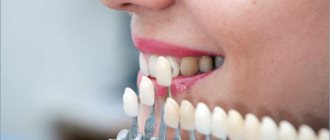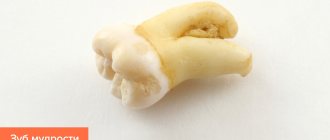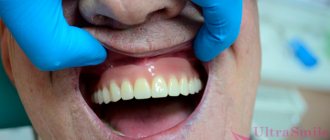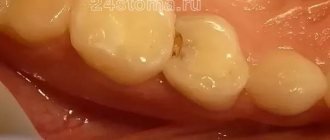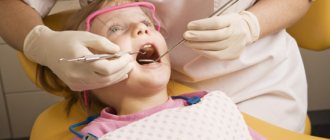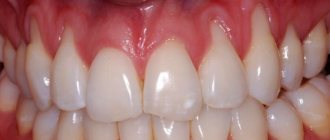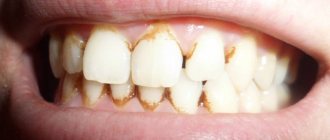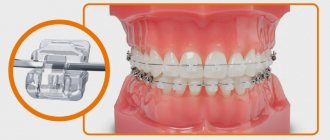If you have a toothache, bleeding gums or tooth enamel destruction, the first thing that comes to mind is to make an appointment with a dentist. For some people, going to the dentist does not cause negative emotions; they perceive the treatment calmly. But according to statistics, for almost every second person, going to the dentist causes fear and anxiety. Such people resign themselves to their pain, endure it, preferring to put off visiting a doctor. Thereby provoking the development of dangerous diseases. You can not do it this way! Dentophobia needs to be dealt with. But how?, you ask. How to stop being afraid of the dentist? We will tell you about this now.
Fear and phobia: what are the differences?
Many people wonder what the fear of dentists is called? Dentophobia, dental phobia or odontophobia are scientific terms that refer to an overwhelming fear of dental treatment. Few of us, having learned about the need for dental treatment, go to the doctor with joy and good mood. Despite the fact that modern dentistry is as safe and painless as possible, the fear of dentists lives in each of us, regardless of gender, age and profession. Sometimes children and women in the dentist’s chair behave calmer than brutal bearded men. However, fear of dentists and phobia are completely different things. Fear is a natural state and occurs in potentially dangerous or uncomfortable environments. Phobia is a pathological condition that is characterized by autonomic disorders and the inability to adequately assess what is happening and make decisions. Some experts call a pronounced, heightened sense of fear a phobia, but this phenomenon is much more complex. Phobia is one of the manifestations of neuropsychic disorders and, if not corrected, can lead to serious complications and mental disorders. The presence of a phobia is confirmed by a number of characteristic symptoms, many of which manifest themselves on a physical level.
Strengthening the root with copper
In people over 40, situations are quite common when a tooth simply breaks and only one root remains. The situation is usually further complicated by inflammation of the gums, because the tooth broke for a reason, but due to a lack of elements that ensure its strength. Usually in such cases the root is removed, but now doctors suggest trying the depophoresis procedure before removal.
Tooth depophoresis is a procedure for saturating the roots with copper. It reliably disinfects open canals and prevents their inflammation. Copper ions penetrate very deeply, into the most remote areas of the root and make them sterile. What is important is that the antiseptic effect of copper is not temporary. It allows you to protect the root from inflammation almost forever. Therefore, such a treated root, regardless of the degree of damage, can be used as a basis for building a new tooth or installing a crown.
Symptoms of dentophobia
Dentophobia manifests itself on two levels: physical and psychological. In the first case, we are talking about very specific symptoms.
- Muscle tension;
- Headache;
- Increased sweating;
- Dilated pupils;
- Nausea, vomiting, gastrointestinal upset.
Of course, these physical manifestations are characteristic of the active stage, when the patient is faced with the need to visit the dentist. Psychological manifestations of dental phobia most often occur at the peak stage, i.e. when trying to start treatment. In this case, a person panics: he is unable to control his actions, becomes aggressive, or, on the contrary, falls into numbness and cannot move. All of the above is a reaction of the central nervous system to stress. If a person has a severe phobia, then the limbic system of the brain transmits special signals to each other, which provoke such behavior.
Sound background
In modern dentistry, it has become a practice that during a dental appointment, classical or calm music should be played in the office to calm the patient. But there is a misconception here. Not all patients like this type of music. The fact is that real people with their own preferences come to see us. Some people like Rock, others Rap, Folk, Punk, “Red Mold”, “Gas Sector”, Soviet pop music, etc. It is better to clarify your preferences before manipulation.
In one of his lectures, Alexey Vodovozov mentioned a study that found that during surgical procedures, the music that the surgeon likes is most effective. It reduces errors and complications, increasing concentration and quality of results.
In my opinion, it is best to reach a compromise here and choose the background that suits all participants in the process. It so happened that in my practice Rammstein often sounds. And even ladies of advanced age listen with pleasure. And at subsequent receptions they themselves ask to stage “that energetic German ensemble.”
Causes of dental phobia
Experts distinguish two types of dental phobia: congenital (imaginary) and acquired. As a rule, the formation of dental phobia is due to a whole complex of reasons, on the basis of which one can draw a conclusion about its nature. Here are the most common factors.
- Heredity. If one of the parents suffered from dental phobia or was afraid of medical intervention in principle, then this fear can be passed on to the children. The likelihood of transmitting dental phobia through the female line is especially high;
- Stress and chronic neurosis;
- Attention deficit disorder. In this case, dental phobia usually manifests itself from early childhood;
- Mental illnesses;
- Low sensitivity threshold. This feature is acutely felt with toothache, as well as with poor or absent anesthesia;
- Disorders of the central nervous system;
- General emotional sensitivity. Stories from friends, watching videos and photographs of dental treatment can develop dental phobia in a person;
- Fear of blood and medical intervention in general;
- Fear of anesthesia (at the dentist or other doctor). This is due to a fear of needles and injections in general;
- Dentophobia develops after a negative experience with dental treatment (especially in childhood).
Working on your fear of the dentist
So, we have introduced you to the basic methods on how to stop being afraid of the dentist. Now your task is to decide to overcome this fear. Spend a little time on what specifically frightens you during the dental treatment process – the type of instruments, the fear of the doctor’s hostility, or the high cost of treatment?
Work with each specific fear, try to analyze it, or even better, imagine it in an exaggerated version. Imagine. That you have come across an evil doctor who does nothing but hurl reproaches at you. Introduced? Naturally, you immediately realized that such a doctor looked like a fairy-tale character. Are you afraid of expensive treatment? Discuss all possible options with your doctor, he is well aware that many types of treatment are not available to a large number of people due to their high cost.
Fear of the dentist does not go away immediately, but it begins to disappear immediately after your first visit to the dentist. Each subsequent visit to the dentist will be easier and easier for you, and when you see the result - straight, beautiful teeth and healthy gums, you will understand that all your fears were unfounded.
Having successfully overcome your fear of the dentist, you can now help your friends, family and children cope with this fear as well. After all, fighting fears with friendly support is more effective and confident. After treatment in our clinic, you will receive a special invitation for your loved one, acquaintance, friend or colleague to a free dental examination. Isn’t it a pleasure to give a beautiful smile to someone dear to your heart? We are waiting for you and your loved ones in our Dentistry on Shchelkovskaya, we will move towards victory over the fear of dentists together!
Why is it necessary to fight dental phobia?
A person with dental phobia, as a rule, refuses to go to the dentist even when absolutely necessary. No reasonable arguments have any effect on him: even with severe pain and advanced diseases, he will put off visiting a doctor. But in no case can you fight dental phobia by refusing to visit the dentist. If you do not visit a doctor in time, caries turns into pulpitis, the gums become inflamed to the point of periodontitis, and severely damaged teeth can only be removed. In the Middle Ages, cases of death after complications of dental diseases occurred quite often and there is a logical explanation for this. The lack of proper and timely treatment has a devastating effect on the health of the entire body as a whole: infection in the oral cavity leads to the development of abscesses and sepsis, diseases of the digestive tract, inflammation of the endocrine glands, rheumatism, bronchial asthma and other ailments. Everything in our body is interconnected, so we must definitely look for ways to cope with pathology. Read on to learn how to deal with dental phobia.
We remove the problem, not the tooth
Very common problems are cysts or granulomas. They are a type of tumor that not only can be a source of pain, but also destroy bone tissue. Cysts become especially painful during a cold or after experiencing stress. It is then that the problem appears in all its glory on the X-ray.
The cause of the appearance of a cyst or granuloma can be an infection in the gum, most often due to careless tooth filling. The consequences of an untreated cyst can be anything. Since it is a source of infection, there is a high risk of infection entering the blood and spreading throughout the body. Such disorders are neurological in nature. Peri-, myo- and endocarditis may occur. Another common consequence is rheumatism of the joints. preventive cleaning and treatment should not be neglected
Previously, in order to clean out the cyst bubble, the tooth was actually removed. This makes it much easier to treat the gums and control the further course of the disease, but now, basically, three other, more progressive methods are offered.
- Cystectomy. During this procedure, the doctor cuts out the cyst and the damaged part of the root. The resulting hole is cleaned and filled with special medications, which should promote the growth of new bone tissue. If everything goes according to plan, the hole will heal and infection will no longer accumulate in it. Full recovery usually takes at least three weeks.
- Hemisection. If one of the tooth roots can no longer be saved, it is removed along with the cyst. After this, the hole is cleaned, treated with disinfectants and closed with a crown. This manipulation is simpler, so the functionality of the tooth is restored faster.
- Laser dialysis. This procedure is not carried out in all clinics, but it is quite effective. The cyst is “killed” using a laser beam that is injected directly into it. This also disinfects the root itself, eliminating the need for additional procedures.
If the granuloma is small, you can try the same tooth depophoresis . In 2-3 procedures you can defeat the infection at the root. It will be practically painless, but you need to strictly follow the procedure and properly care for your oral cavity between them.
How to get rid of dental phobia?
For a long time, dental phobia was not perceived as a phenomenon worthy of attention. Parents forcibly dragged their crying and kicking children to doctors' offices, thereby making matters worse. Adults suffered no less: they either put off going to the dentist until the last minute, or went through serious pain and did not find understanding from others. This was especially true for men: a person with dental phobia can easily faint at an appointment. For many men, this is a strong blow to their pride. Fortunately, today dental phobia is taken much more seriously. A number of publications write about how to overcome fear of dentists, and experts conduct research to improve the effectiveness of various measures. There are a number of techniques that can help, if not get rid of dental phobia completely, then at least eliminate its most severe manifestations. Methods for correcting dental phobia are divided into medicinal and therapeutic.
- Drug treatment of dental phobia. The main drug for correcting severe forms of dental phobia is the antidepressant Tsipramil and other drugs similar in action and composition. Antidepressants help eliminate panic and anxiety and normalize the production of serotonin. Immediately before starting treatment, sedatives may be recommended, as well as natural remedies that have a calming effect.
- Therapeutic treatment. The psychotherapeutic method is based on analyzing the causes of dental phobia and overcoming fear by the patient himself. The main role here is played by a psychologist who seeks an individual approach to the patient and helps him cope with his problem. This allows you to look at the problem from the outside and prepare for a trip to the dentist.
Tooth extraction: how to stop being afraid of pain
Mikhail D., patient of the “Private Practice of Irina Zaitseva” clinic: “I will never forget how scared I was to remove a painful tooth. But there was nowhere to retreat; according to the doctor, it was no longer possible to save him. And what a surprise I was when I saw an already pulled out tooth in the dentist’s forceps, and realized that I didn’t feel anything during the process.”
When it becomes necessary to remove a tooth (for example, a wisdom tooth), a struggle occurs in every patient, regardless of age and gender. The conscious need to get rid of the source of pain and illness comes into conflict with the subconscious fear of losing some part of oneself, with the instinct of self-preservation. This is how it looks from a psychological point of view. But at the moment when we need to sit in the dentist’s chair and open our mouth, we do not analyze the reasons for our anxiety, but find the simplest and most convenient explanation for our condition - I’m afraid that it will hurt.
These are completely natural experiences, there is nothing pathological or wrong in them. Remaining completely calm in such a situation is common to few people.
According to research, every second child in Russia heard a sentence from their parents: “Let’s tie a thread around a loose tooth and pull it. It won't hurt." According to the same statistics, 100% of children experience severe fear at the moment of tying a thread around a tooth. After all, this procedure is often associated with pain; the memory clearly records negative emotions.
What to do before tooth extraction so as not to worry
Nervous tension before tooth extraction is accompanied not only by psychological discomfort, but also by tension in the whole body. Some patients are so tense and constricted that they cannot even open their mouth wide. This may prevent the operation from proceeding quickly and easily. Therefore, before entering the dentist's office, try to:
- take a deep breath and relax
- conduct an internal conversation, explain to yourself the nature of your anxiety
- think that in 15-20 minutes everything will be behind you
- try to talk and get to know the doctor better. This will help you build trust in him, and trust will help you relax.
In addition, ask your doctor in advance for permission to take a sedative 30 minutes before tooth extraction.
What to do if a child has a tooth extraction
If your child is about to have a baby tooth removed, then avoid phrases like “don’t worry, it won’t hurt.” This will not relieve tension, but will only show the baby that you do not understand the reasons for his worries. Instead of this
- Tell your child that his anxiety is a normal, natural process
- hug and pet him
- be kind and calm.
What you should definitely tell your doctor about before removing a child’s tooth
- Have you or your child ever had teeth removed before, how was the procedure performed, were there any complications?
- Do you or your child have any allergies to any medications?
- Do you or your child suffer from any chronic diseases?
Common Misconceptions
Sometimes patients ask to have a tooth removed instead of having it treated. A professional dentist will never agree to this. Removing a tooth that can still be saved is a bad and sometimes even criminal alternative to even long and troublesome treatment. Dentistry is a branch of medicine whose task is to preserve teeth, and not to pull them out or replace them with implants or dentures.
Important tips for patients with dental phobia
- It is necessary to treat your teeth! The principle of postponing problems “for later” will take away more time, nerves and costs.
- Make an appointment with a psychologist! The root of the problem may be deeper than you think, and a specialist will help you figure out what's what.
- Remember, you always have a choice! Learn information about pain relief methods used in dentistry, as well as modern methods of dental treatment without a drill. Using your knowledge, choose the clinic that keeps up with the times.
- Find a contact with a doctor! You need a highly qualified specialist who will understand your problem and be ready to help you solve it. Try to visit the same specialist.
- Eliminate the slightest reason for stress! Before treatment, find out what will be done for you, how, and how much it will cost.
- A pleasant atmosphere is important! Choose a clinic with a welcoming, beautiful environment without the strong smell of medicine, friendly staff and no queues or crying children.
- Dentophobia in a child often occurs after the first unsuccessful treatment. Contact specialized clinics, where everything is subordinated to the child’s comfort. Good specialized clinics employ doctors who know the peculiarities of the child’s psyche and know how to find contact with almost any child.
Caring for your oral cavity after surgery
The speed of wound healing depends on how you follow the rules of hygiene. Also, proper care allows you to avoid infection of the hole and aggravation of problems.
- Do not eat food for the next 4 hours after the procedure. The first time, try to eat something soft: cream soup or puree. Under no circumstances should you eat hot food. The same goes for drinks.
- Don't touch the hole. Neither with language, nor with any objects. For effective healing, it is very important to maintain the integrity of the blood crust that has formed on the wound.
- You won't be able to brush your teeth for a few days. To keep your mouth clean, rinse your mouth with a baking soda solution (half a teaspoon per glass of water). A decoction of chamomile, calendula or oak bark also disinfects and promotes healing.
- During the first weeks, brush your teeth only with a soft or ultra-soft toothbrush so as not to irritate your gums. Use the toothpaste recommended by your doctor - it will promote healing.
- For two to three days after surgery, try to refrain from smoking, drinking alcohol, and using the sauna. All this can negatively affect the condition of the crust while it has not yet hardened.
Full recovery will occur in 2-3 weeks, then you can return to your normal rhythm of life. In complex surgeries where you have to wait for bone tissue to grow, recovery may take up to 14 weeks . But still, after the first three, you will be able to eat normally, and your gums will not be sensitive to temperature.
